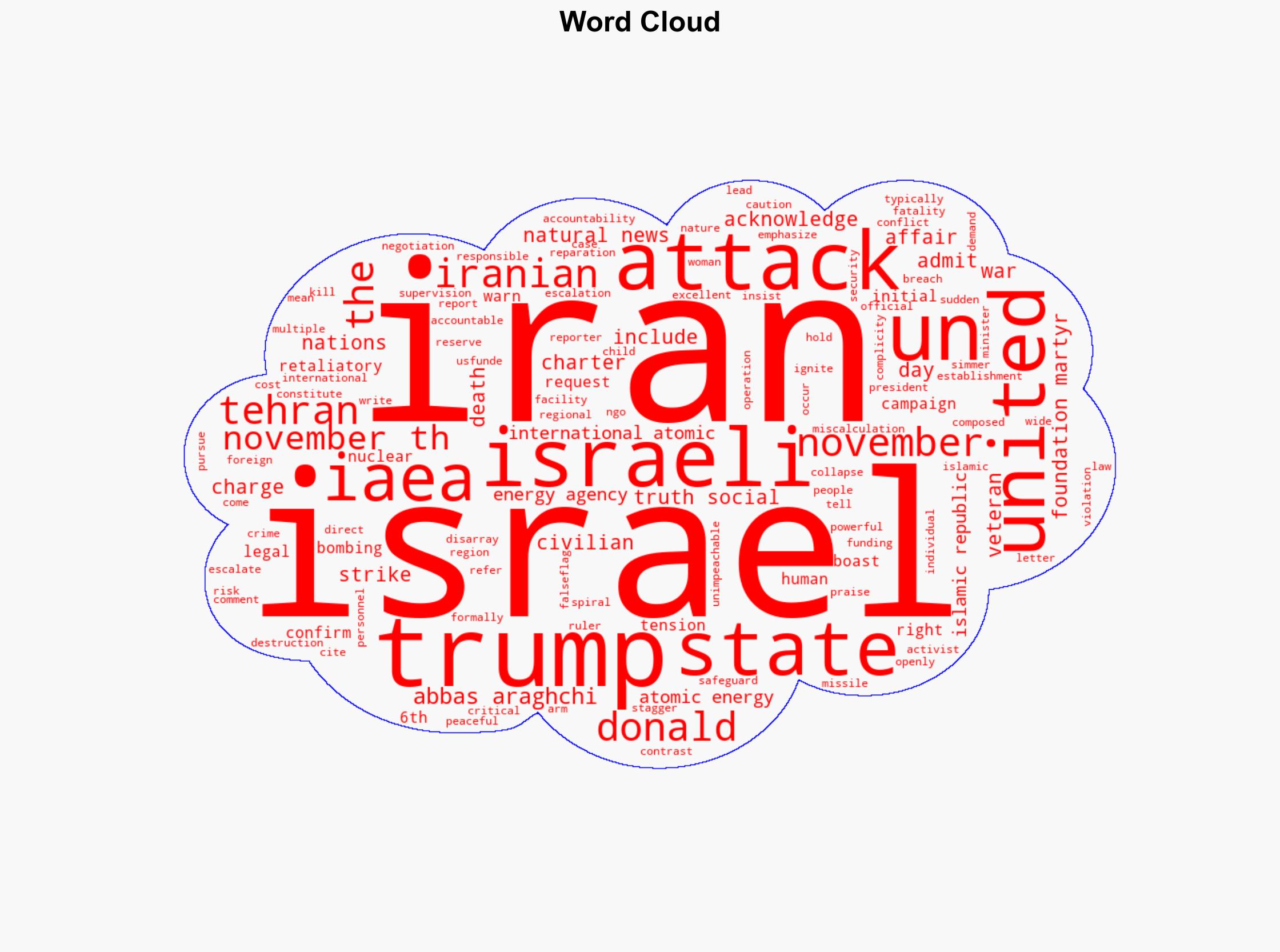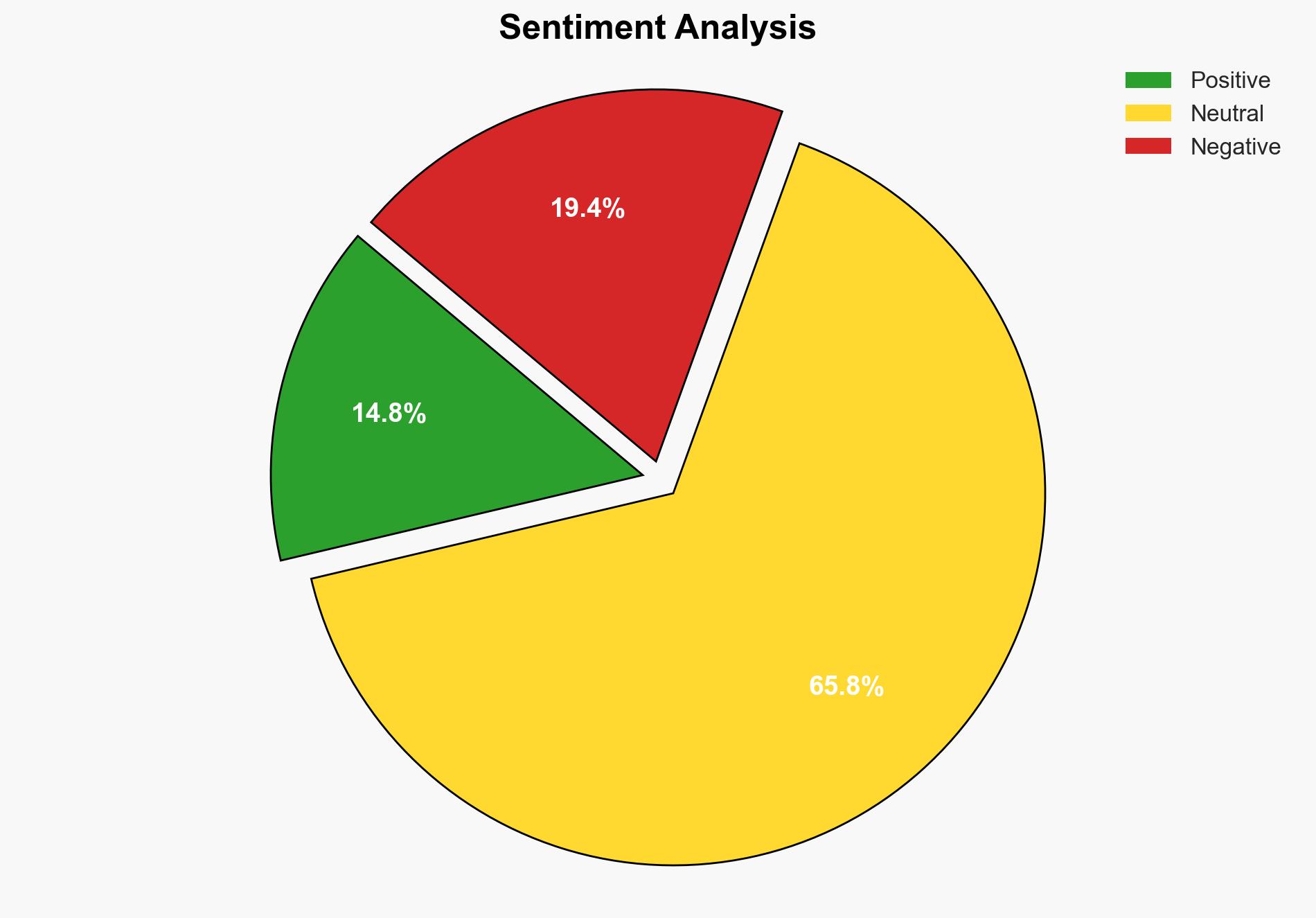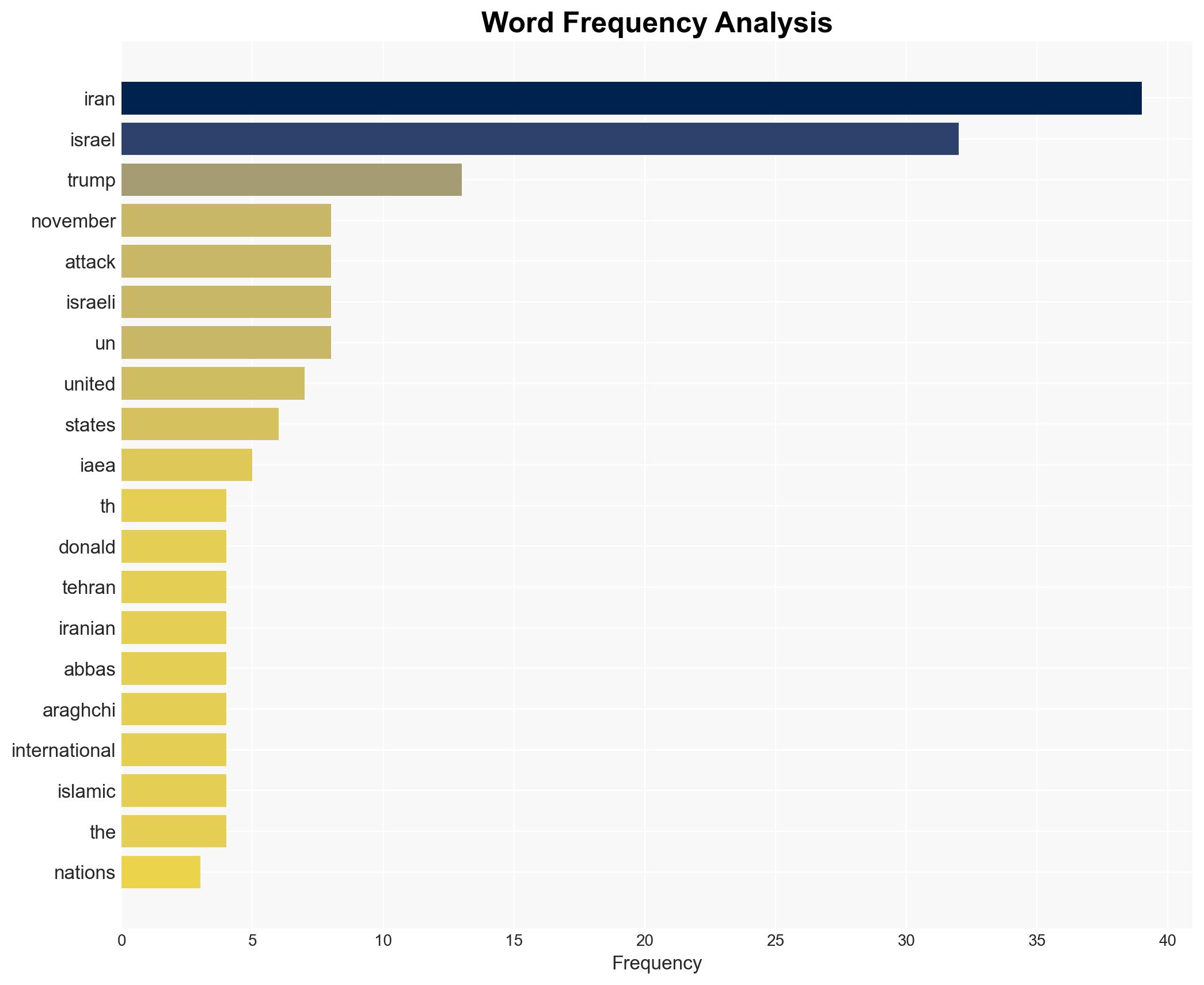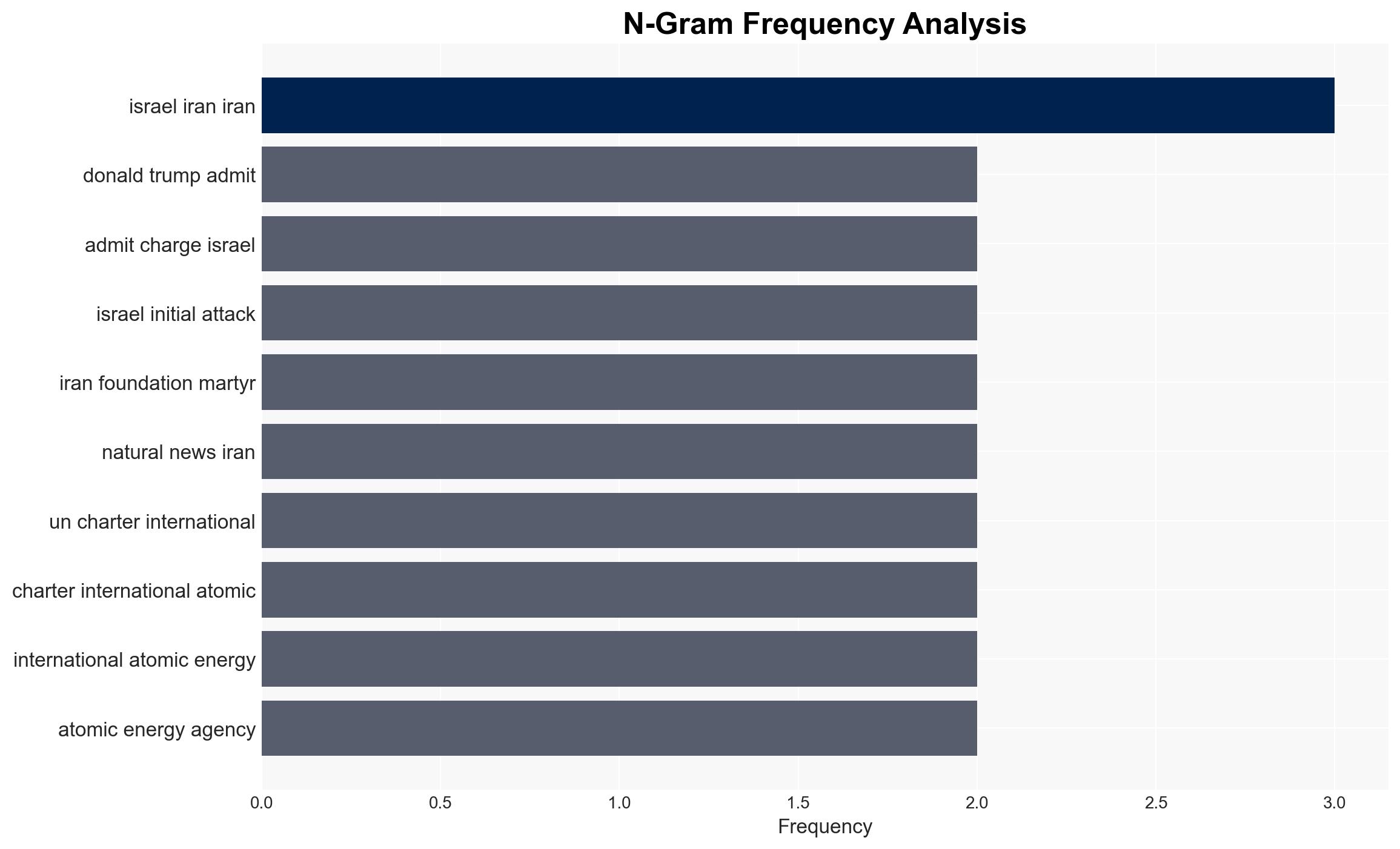Tehran Demands Action From UN After Trump Admits To Helping Israel Strike Iran – Shtfplan.com
Published on: 2025-11-16
AI-powered OSINT brief from verified open sources. Automated NLP signal extraction with human verification. See our Methodology and Why WorldWideWatchers.
Intelligence Report:
1. BLUF (Bottom Line Up Front)
With a moderate confidence level, the most supported hypothesis is that Iran is leveraging international legal frameworks to gain diplomatic leverage against the United States and Israel, following Trump’s admission of U.S. support for Israeli strikes. The recommended action is to closely monitor diplomatic communications and prepare for potential escalations in regional tensions.
2. Competing Hypotheses
Hypothesis 1: Iran’s request for UN action is primarily a diplomatic maneuver to gain international sympathy and leverage in ongoing negotiations, rather than a genuine expectation of punitive measures against the U.S. and Israel.
Hypothesis 2: Iran is genuinely seeking to hold the U.S. and Israel accountable through international legal mechanisms, aiming to deter future military actions and strengthen its regional position.
Assessment: Hypothesis 1 is more likely given the historical context of Iran’s use of international forums to gain diplomatic leverage, combined with the improbability of the UN taking significant punitive actions against the U.S. or Israel. Hypothesis 2 is less likely due to the limited effectiveness of international legal actions in altering state behavior in similar past scenarios.
3. Key Assumptions and Red Flags
Assumptions: It is assumed that Iran’s nuclear activities remain under IAEA supervision and that the international community remains divided on how to address Iran’s grievances.
Red Flags: Potential bias in reporting from Iranian and Israeli sources, as well as the possibility of misinformation or exaggeration of civilian casualties to sway international opinion.
Deception Indicators: Iran’s historical pattern of using international platforms for strategic messaging rather than expecting substantive legal outcomes.
4. Implications and Strategic Risks
The situation presents several risks, including the potential for increased regional instability and the derailment of nuclear negotiations. There is also a risk of cyber retaliation by Iran against Israeli or U.S. interests, as well as potential economic impacts if tensions escalate into broader conflict.
5. Recommendations and Outlook
- Monitor diplomatic channels and UN proceedings for shifts in international support or condemnation.
- Prepare contingency plans for potential cyber threats originating from Iranian actors.
- Best-case scenario: Diplomatic efforts de-escalate tensions, and negotiations resume with renewed vigor.
- Worst-case scenario: Military engagements escalate, leading to broader regional conflict and significant economic disruptions.
- Most-likely scenario: Continued diplomatic posturing without significant changes in the status quo, with periodic flare-ups in tensions.
6. Key Individuals and Entities
Donald Trump: Former U.S. President, admitted to supporting Israeli strikes.
Abbas Araghchi: Iranian Foreign Minister, author of the UN letter.
IAEA: International Atomic Energy Agency, overseeing Iran’s nuclear activities.
7. Thematic Tags
Regional Focus, Middle East, Iran, Israel, United Nations, U.S. Foreign Policy, International Law, Regional Security
Structured Analytic Techniques Applied
- Causal Layered Analysis (CLA): Analyze events across surface happenings, systems, worldviews, and myths.
- Cross-Impact Simulation: Model ripple effects across neighboring states, conflicts, or economic dependencies.
- Scenario Generation: Explore divergent futures under varying assumptions to identify plausible paths.
Explore more:
Regional Focus Briefs ·
Daily Summary ·
Support us
·





